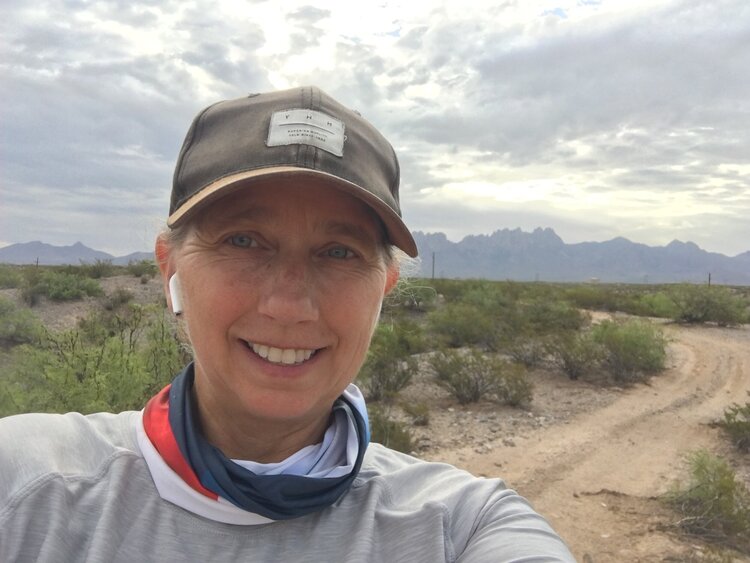What are the experiences in life that yielded within you maximum growth or that you are most proud of? More than likely such affairs involved exiting your comfort zone and/or experiencing challenge or struggle.
In watching students pass through my classroom I have the opportunity to see how certain approaches yield the most significant results. And this is not about “getting the grade” or “getting that amazing IB score", it’s about personal growth and development. It’s about establishing patterns of hard work. It’s about the desire to learn as much as possible and to be the best that you can be.
This year I had the amazing opportunity of advising two students through extended essays (independent, self-directed research culminating in a 4000-word paper) in Science. I might be biased, but doing an extended essay in Science takes a bit of courage and a lot of work that some of the other disciplines don’t require. Not only do the science students have the same expectations regarding research and the written word, but they are also required to produce an original scientific experiment.
One student chose to research and work on a chemical on which there is hardly any literature available. As a result she had to research and make connections between similarly structured chemicals. Her idea required hours in the lab generating a calibration curve and troubleshooting how she would manipulate the independent variable, before even performing her ultimate experiment. The final results were that the independent variable did not have an effect on what she was studying, a conclusion that initially came as a crushing blow. However, she picked herself up, learning that this is also part of Science and that such results are valuable. She pressed on to put together a thorough and coherent report despite feeling discouraged and ever so “done” with her project. She shared that she had truly learned the meaning and value of perseverance.
The other student built his own electrophoresis apparatus! He also passed hours in the lab just trying to get his protocol to work. He dedicated an entire week out of his summer coming in every day, all day, to work on his experiment. Then school started and he averaged about 10 hours a week through the first semester. I was getting ready to have the conversation with him that he might want to consider another topic. However, that very morning he was able to visualize genomic DNA in his gel. He announced this breakthrough in homeroom and every single student in the senior class cheered for him as they all knew how hard he’d been working. He went on to perform a most interesting, original, and very involved experiment with his set-up. He told me during the viva voce (the final interview with the advisor) that he “learned the importance of trial and error and to never give up.”
In another area of IB curriculum, a student at our school elected to take the Dutch Language B course of study. Language B is designed for non-native speakers of a language with 2-3 years of background in the language. This student had one year of Dutch language before the IB DP years. She took a 2-week language course in Belgium to help herself prepare. This experience alone was agonizing as she was the only English speaker at the camp. All other students were native French speakers coming to the camp to learn either Dutch or English and she was compelled to rely exclusively on her “broken Dutch” to communicate. However, she returned with increased language skills and embarked on a committed journey to learn as much Dutch as she could. She ended up earning a “5” out of “7” on the IB exam and now claims that that score means more to her than any other as it represents how far she came. She accomplished what many assert isn’t possible: to succeed on an IB Language B exam with so little initial exposure to the language. Additionally, she learned of the growth, personal development, sense of achievement, and empowerment that comes from exiting your comfort zone and tackling the impossible.
Another student has been exceedingly dedicated in all of her classes. However, she desperately wanted to bring her math skills up significantly. So, she focused with fervor on practicing her math. Hours and hours were spent on becoming a better math student. And, she demonstrated huge success on her mock exams this past December. She continues to heed the advice of each of her teachers as she prepares for the May exams, not slacking for even a minute. It hasn’t been easy but it’s clear she’s learned the value of sheer hard work.
What makes these examples special is that each student chose paths of challenge. Adversity wasn’t just thrust upon them. They knew they were taking a less traveled path and I think this element of choice makes their journey all the more enriching for them and inspiring to me.
It isn’t too late for the rest of us! We are faced on a regular basis to take an easier route or a more demanding enriching route. This year I took on three new curriculums! Both struggle and joy have enveloped me. I’ve learned and grown as a teacher and as a person as I dealt with very new issues in the classroom. And next year I will be teaching robotics and Computer Automated Design (CAD). I look forward to this experience and anticipate that it will be invigorating, mind stretching, and character building.
My question today is, what new challenge are you ready to embrace?

